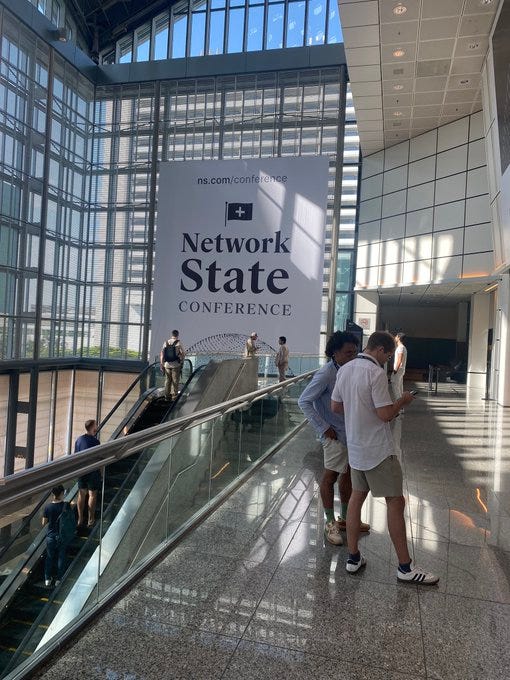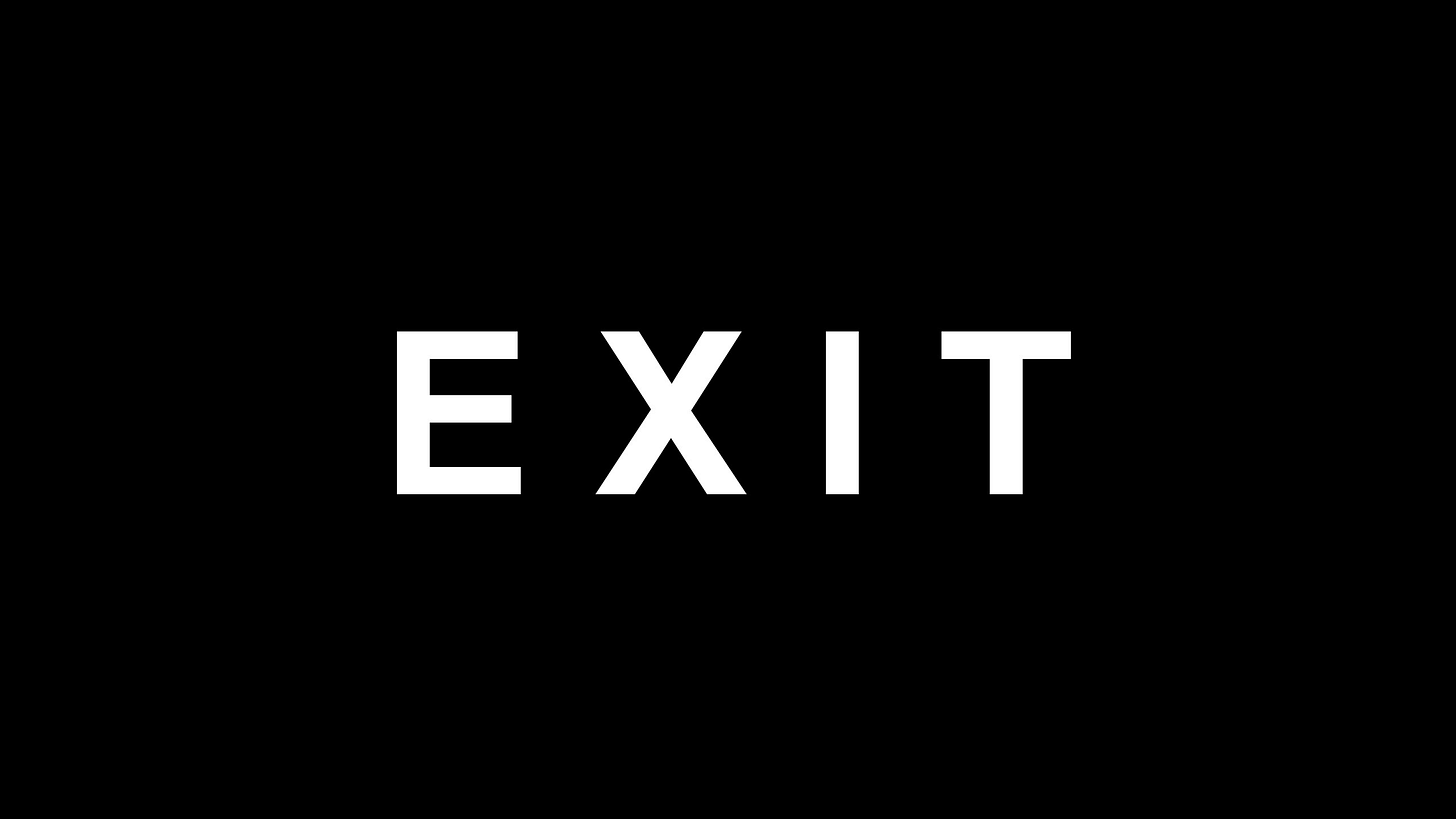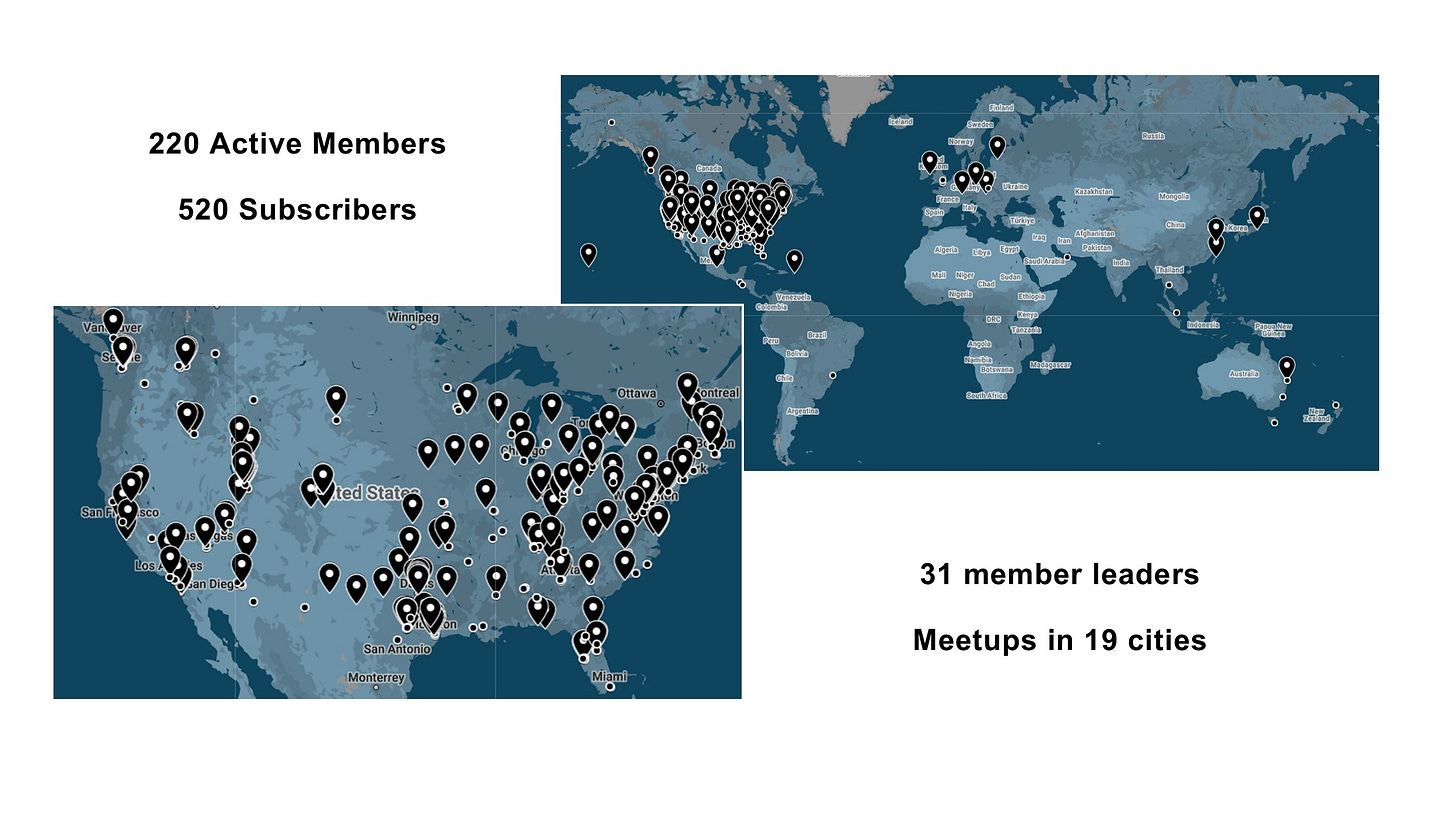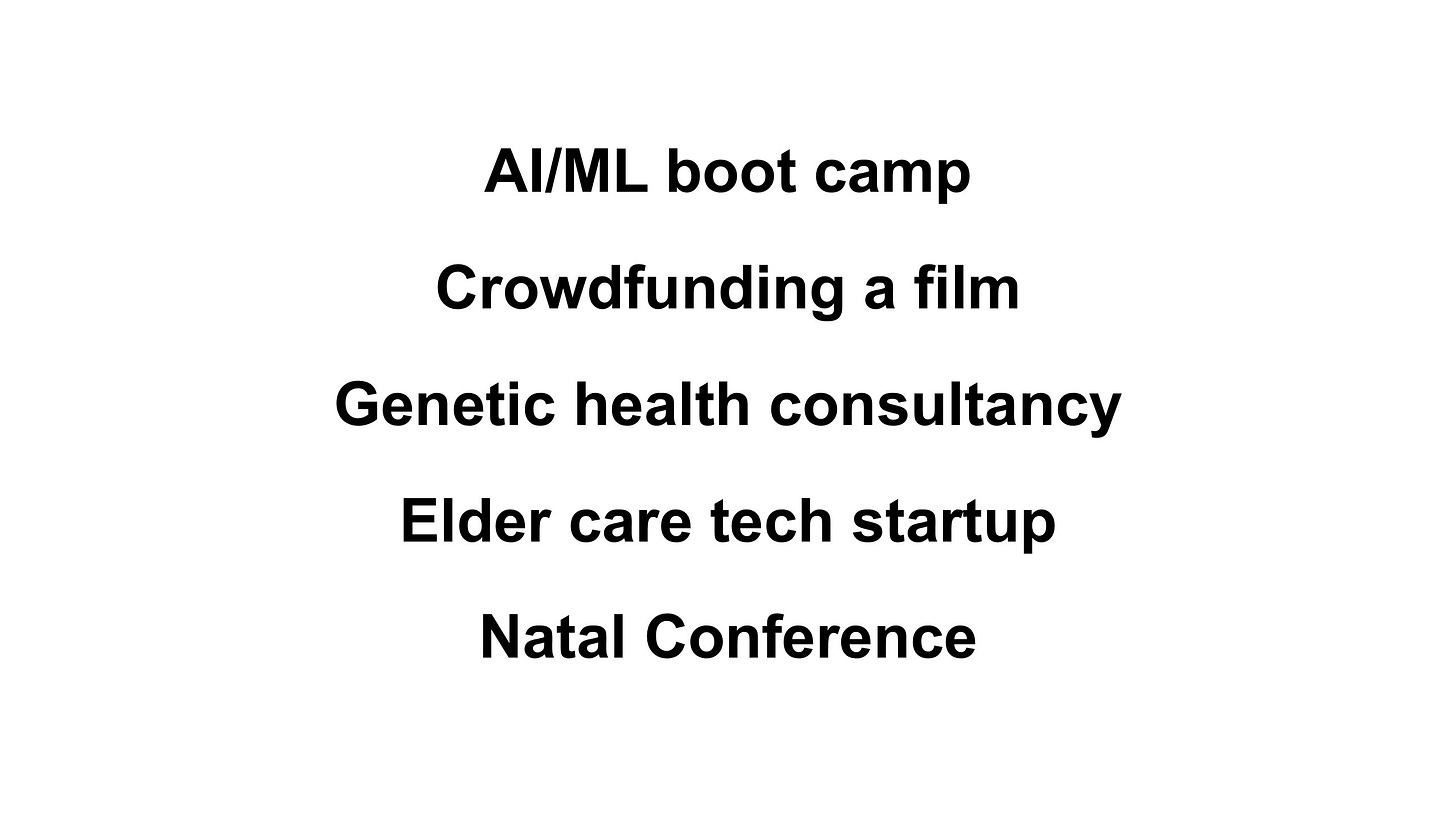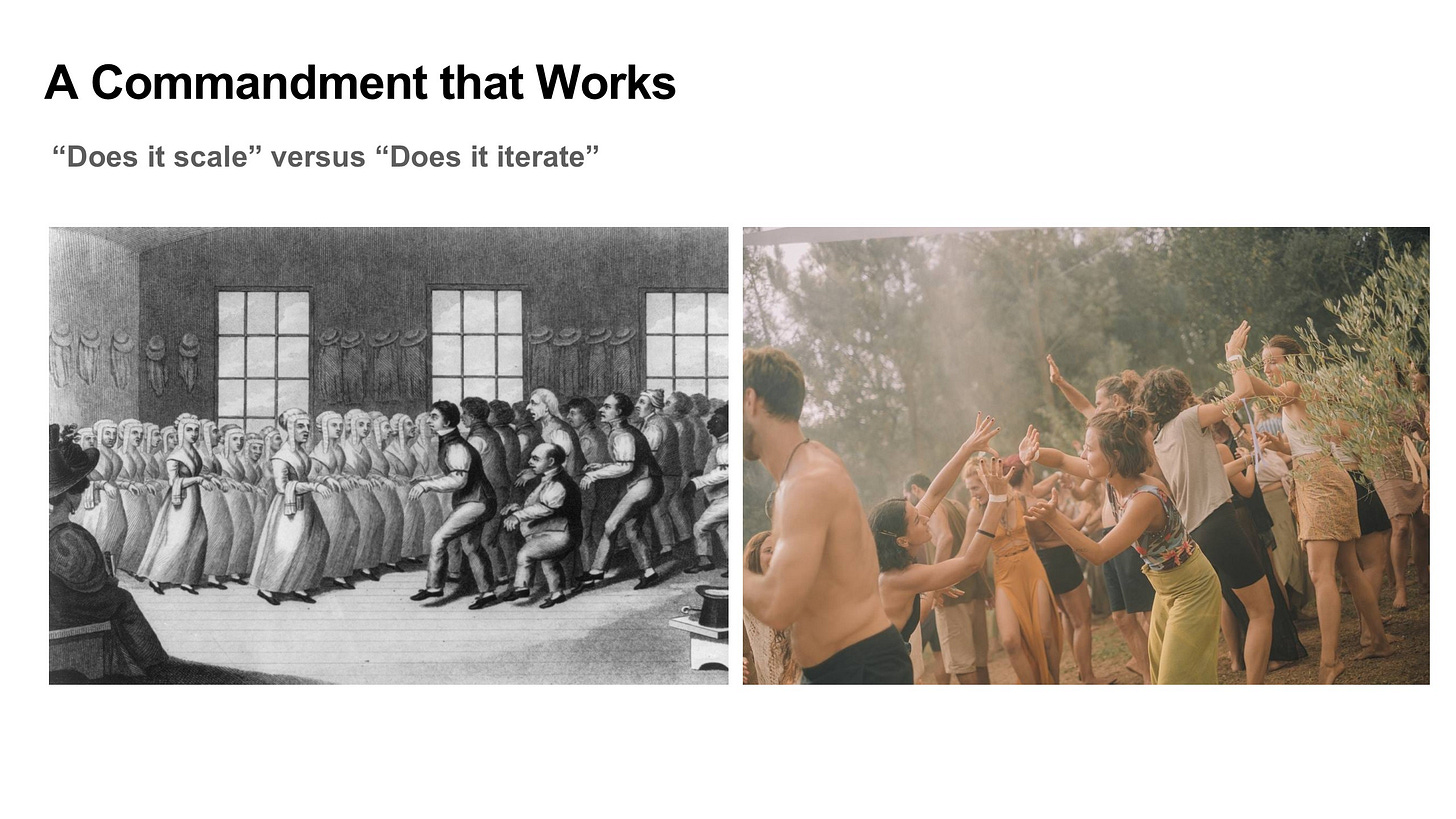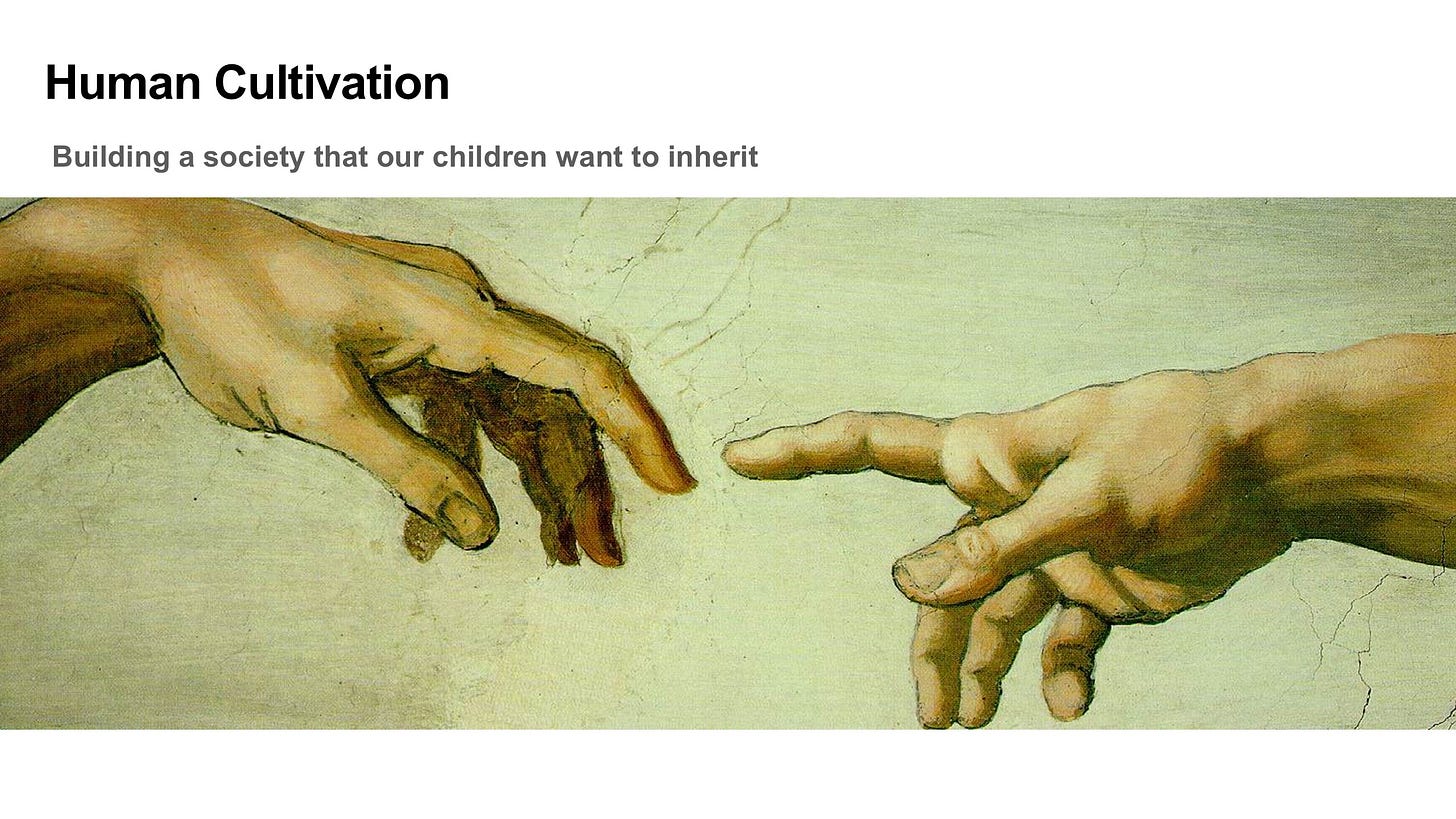Does It Iterate? (Network State Conference Singapore)
Last weekend, I spoke at Network State Conference at Suntec City in Singapore.
Network State Amsterdam was a great time, but everything about this one was a significant upgrade. It was better-organized, the guest list was more impressive, the presentations were of higher quality, the venue was more beautiful.
We stayed in the cheapest hotel we could find (and it was a total gouge, because Formula One is in town).
We later found out we had been staying in Singapore’s red light district, and our hotel was available to rent by the hour — it was obviously a multiethnic low-income neighborhood, but everything was very clean and functional and polite. Apparently all the “local color” was behind closed doors.
There was no screaming on the metro, there was no smell of urine, nobody nodding off in the street.
I’m not telling you anything new, but it can totally be done — at least at the scale of a city of six million.
And as the technological environment increasingly turns against big lumbering industrial behemoths, there’s hope that more of the world’s polities will return to the scale where this kind of competence is possible.
Below is my talk from TNS Singapore.
Good afternoon, I’m Kevin Dolan, the founder of EXIT. I’d like to open my remarks with a question: Does your thing iterate?
Your culture, your values, the things that are most important to you – will they outlive you?
But first, I’d like to tell you the story of how we built EXIT into a network union.
EXIT is a fraternity and mutual aid society that started in August of 2021. I and several of my friends had lost our jobs to antifa doxxing rings – but it wasn’t just doxing. If you remember the political climate at the time, all sorts of ordinary people who weren’t saying anything interesting on the internet were still losing their jobs.
We realized that it wasn’t just cancel culture, wasn’t just our W-2s -- the health care system, the financial system, the supply chains, the schools – everything we depended on was in terminal decline, and had become hostile to life.
We saw that a very tight bottleneck was coming for the people and cultures that stayed inside those systems, and that we would need parallel institutions to make it through.
One group call turned into twelve weekly accountability calls, where we would work together to learn new skills, find aligned employers, build businesses, improve our health, educate our kids.
As the group built critical mass in cities all over the US, I started getting on a plane once a month to run meetups, with an unconference, a barbecue for the families.
Today, we have 220 full members, and 520 paying subscribers.
We have 31 member leaders who each keep an eye on 6 or 7 guys in their region of the country.
I’ve organized over 50 meetups in 19 cities — but in cities where we have a lot of strength, like Austin, Salt Lake City, Dallas, Houston, Seattle, and DC, the group holds monthly member meetups without me.
In Network State circles, people often ask about the algorithm – how do you determine who’s in and who’s out?
We have an intake call for every member to verify basic alignment and ability to contribute, but the real way you gate for alignment and trust is by working together over time.
So we’re always looking for group projects, and we’ve run hundreds so far – most of these are moonshots and hobby things that the guys do just to build trust and capacity.
But some have gone in really interesting directions, and I’d like to showcase a few:
One of our guys started an AI and machine learning boot camp, which has been great for him, but it has also set a dozen or so of our guys from entry-level dead-end jobs to a course where they can credibly support a family on a single income from a laptop.
Several of the guys crowdfunded a film together
One of the guys started an elder care tech startup that is now challenging a bloated billion-dollar incumbent.
What all these projects have in common is that they’re about building sovereignty together.
And then we put together Natal Conference, which I’d like to spend a minute on, because it’s the heart of everything we’re doing.
We got 125 people together in Austin to discuss global demographic decline.
Balaji was our surprise closing speaker & in April of 2024, Elon Musk posted my opening remarks on X with the headline, “If birth rates continue to plummet, human civilization will end”.
Every culture, every value system, every people on earth is passing through a bottleneck tighter than the Black Death.
There is no place with access to modern technology and modern memes that is reproducing itself.
This was why all these normal, basically apolitical family guys felt the need to build on the outside.
Because if your thing can’t iterate beyond your lifetime, it won’t matter what else it accomplished.
There’s three ways to iterate:
First, you can reproduce through genes which is the “red tribe strategy”: just make babies. But the red tribe is failing to iterate because they’re having children, but not grandchildren. They’re losing their kids to hostile memes.
Second, you can reproduce through memes, which is the “blue tribe strategy”. But the blue tribe is failing to iterate because just like you can run out of other people’s money, eventually you run out of other people’s kids.
And an emerging “gray tribe solution” is “what if we just never die, and then we don’t have to worry about iterating”.
That’s Bryan’s beat, and we’ll leave it to him; we’re looking at the first two.
Early on at EXIT we were thinking about KPIs — what are we aiming at? How do we know if we’re winning? My NatalCon cofounder Drew asked, “Is it kids?” and I said, “No, it’s grandkids”.
Because if you have grandkids, you’re passing on your memes and your genes. Your thing iterates.
It’s a lousy KPI, because it works on a 20 year lag – but it’s a solid One Commandment.
The One Commandment is not arbitrary.
It’s the difference between what we’re all trying to build, which is a tribe, a people – and just a SaaS solution, an expensive party, a consumer product.
Because it binds people to something larger than themselves, something for which they will sacrifice and build, something beyond their own consumer interest.
This problem is as old as the idea of intentional communities.
It’s actually not that hard to get like-minded friends together to play, especially if they’re rich and unattached. It’s really hard to get them to stay, and build, and sacrifice, and iterate.
We’re all atomized creatures of modernity; for most of us, having children is our last and only experience with primal, tribal, instinctive loyalty; and so it makes sense as a place to start.
I’m basically a red tribe guy. I’m religious, I have six kids — and so the question of why our kids aren’t having grandkids is one that I think about all the time.
But I remember being a teenager, and seeing how unappealing the adult life in my tribe was — all day in the cubicle, then going home to watch sports or play video games, then bed.
People talk a lot about modern culture’s lack of “initiation rituals”, but the real problem is that there’s nothing worth initiating into.
So the project of building for grandchildren is a project of human cultivation.
If we want our kids to want to perpetuate our culture, we have to live admirable and excellent lives.
We have to surround ourselves with admirable and excellent people.
You should marry someone you want your kids to be like, because they will be.
But if you want to know what your grandkids will be like, it’s your tribe – the extended network that you raise your kids around.
And that puts us up against the hard limits of decentralization.
You can have a remote job or a remote startup, but your kids can’t have a remote campout, or a remote jiu jitsu class, or a remote first kiss.
So we’re getting together to build a private club space dedicated to human cultivation.
We’ve spent the last year pulling together resources and building consensus, and last month I sold my home in Virginia and relocated my family to the hill country outside Austin.
So why Austin?
We needed a values-aligned tech hub, so that we could work and build there. We weren’t interested in bugging out to the woods.
But it needed to be in a safe jurisdiction with strong parental and property rights, which dramatically narrowed it down.
We’re not natural expats: we have extended families, and our families have friends and commitments
But we wanted a place where we could build optionality, and prepare to relocated if we needed to.
So what’s next for us?
We want to educate parents and children together.
We’ve found that the best way to connect parents is through their children, and we want to show our kids an example of self-cultivation.
We’re setting up regional preparedness cooperatives.
As infrastructure and security situations get dicier, we want our guys to be prepared where they are, and equipped to lead in their communities.
We’re also setting up pop-up clubhouses in Salt Lake, Seattle, Dallas.
Not everyone can relocate, so we want Austin to be the pilot for similar clubs all over the country.
And as the group grows beyond the Dunbar number, we want the ability to securely network at scale.
We can’t just put everybody in a Google doc, so next month we’re rolling out an LLM bot that we’ve been working on for the last six months, which will allow double-opt-in secure networking.
I want to thank Balaji for supporting me and my friends and allowing me to speak.
What I love about the Network State as an umbrella is that it allows people with compatible values but different priorities to learn from one another.
We’re really excited to check out Network School and try the Blueprint diet.
We’ve found some things that really work in human organization, and we’d love to share it with you.
You can follow us at blog.exitgroup.us.
Thank you for listening.
(Livestream available here: my remarks start at 05:06:00.)
EXIT News
On this week’s full-group call, we discussed updates from Singapore — what we presented here, and things we want to bring back to the group.
Next week we will hear from Alex Petkas from the Cost of Glory Podcast on classical education and how the ancients viewed the cultivation of excellence.
Member meetup in Salt Lake City this Friday (9/27). Members can check the #utah channel in the chat for the invite link.
Real estate call this Thursday (9/26). We’ll talk about scouting in Austin, leased space in Salt Lake and Seattle, and any real estate projects the guys are pursuing independently
Four-month business incubator starts in October.
Develop an idea into a business model and investor pitch
$500 buy-in, but you get $450 back as you show up and hit your commits.
Remainder goes to a prize for the winner
Members can check #BizIncubator in the chat for more details
Cocktail hour invites for Washington, DC (10/11), San Francisco (11/8), and Dallas (12/6) meetups available below the paywall. EXIT cocktail hours are a great opportunity to meet your local guys, and see if the full group is right for you.




